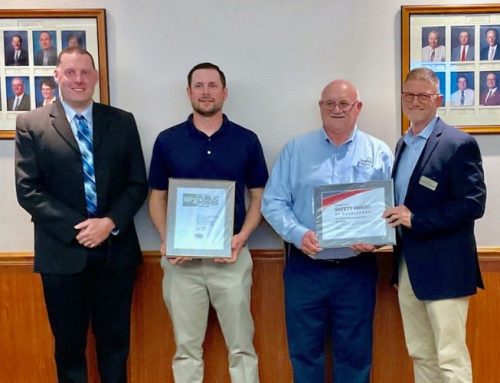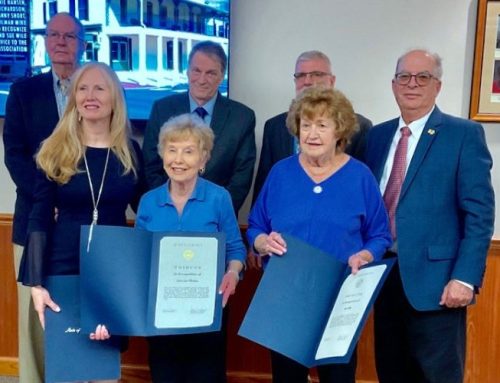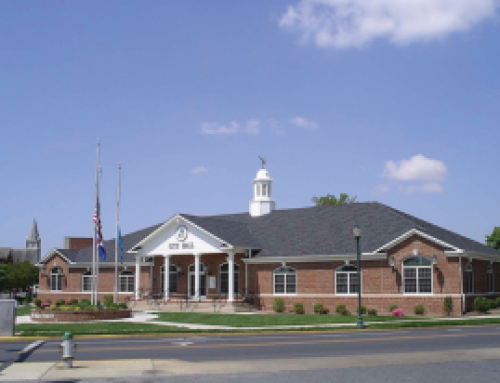A public hearing was held in regard to increasing water rates in Bridgeville. That, and other issues were discussed at the Bridgeville Commission Meeting, held Aug. 8 at the Bridgeville Public Library. Town Manager Bethany DeBussy explained the reasoning, along with a seven-month study that led to the difficult decision to raise water rates in the town. Water rates have not increased in Bridgeville since 2010, according to a report prepared by the Delaware Rural Water Association.
Town Commission President Tom Carey laid out the rules of engagement before the discussion began: no talking over anyone else, take turns, and do not be disruptive. Those in attendance abided by the rules set forth, and stated their aggravations in clear, concise tones. Overall, a respectful manner was maintained throughout the meeting.
DeBussy started by saying the water association has been working together with the town since January to try to come up with viable measures to keep the cost increase as low as possible, while building up a surplus to deal with any future emergencies the town water system might face.
The starting point of everything was the loss of the wastewater management system in Bridgeville. A lot of funds supplied by the wastewater system went into financially supporting administrative aspects of the town. The water department was also supported by the wastewater department. It was explained that the EPA, around 2017 or 2018, stated the town of Bridgeville needed to make changes to the wastewater facility, at a cost of approximately $16 to 18 million.
DeBussy said such a cost to the town would have forced it to exponentially raise rates to cover for the changes, to the point that the cost to the taxpayers would have been devastating – a cost from which the town would have been hard-pressed to recover. It was decided at that time to close and demolish the wastewater facility, and rely upon Sussex County to help take care of the wastewater.
However, shutting down the facility meant that the town is now looking at a net loss for the water department over the next 10 years. The problem town leaders faced was how to move from the past to a sustainable system. They poured over data, from the history of the water department, as well as comparison data regarding water rates throughout the region. DeBussy made a point to note that all of their findings and comparison data would remain available for public viewing on the town of Bridgeville’s website.
It was noted that while the wastewater treatment plant used to support multiple revenue aspects in the town, the water increase would only support the costs of the water department, present and future. According to the DRWA study, the current rate is $7.50 per month; a secondary meter is $5.50 per month. The new rates will be $15 per month; a secondary meter will be $10 per month. There are three tiers of charges for water usage. In the past, the rates worked out accordingly: $2.79 per 1,000 gallons used up to 5,000 gallons per month; $3.35 per 1,000 gallons for the next 5,000 gallons used; $3.75 per 1,000 gallons used over 10,000 gallons. Using those figures, an average monthly water bill estimate for 5,000 gallons of water is $21.45. With the new rates, the DRWA figured out the charges accordingly: $3.76 per 1,000 gallons used up to 5,000 gallons; $4.32 per 1,000 gallons used for the next 5,000 gallons; $4.72 per 1,000 gallons used over 10,000 gallons. According to the study, an average monthly water bill in Bridgeville would be $33.80 for 5,000 gallons of water usage.
Most in attendance expressed their displeasure regarding the second meter issue. A common complaint was that they felt it unfair that, as early settlers of Heritage Shores, they were compelled to install two meters in the building of their homes. Now, homes in Heritage Shores are built with only one meter. One woman said, “I feel like I’m getting a triple whammy, with the meter, second meter and Sussex County charges.”
DeBussy and Carey expressed that when initial building occurred at Heritage Shores the water treatment facility was still in operation. The first meter at homes in Heritage Shores were to take care of water needs throughout a person’s home, while the second meter covered the outside irrigation systems for residents’ lawns. Because of the demolition of the water treatment facility, two meters are no longer needed in the building of new homes.
A few residents asked if when meters are replaced by the town in the near future, if they can dismantle the second meter. DeBussy answered that if the second meter is taken out, the plumbing would need to be reconfigured. To reconfigure plumbing out front, it would cost approximately $750; to reconfigure the plumbing out back, it would cost approximately $1,500. That statement was met with displeasure by a few in attendance.
Commissioner Tom Moran said that most people run their irrigation systems at 3 a.m. in Heritage Shores. That said, he noted that there are people overwatering their lawns there.
Also, it was stated by a few residents of Heritage Shores that even with filters throughout their homes, some are experiencing a disturbing issue. One resident brought a sample of water. There was “black stuff” floating around her water. “I can’t drink my water,” she said, “I collected this two hours ago.”
Moran replied, “All of our water has black stuff in it.”
Carey said the public hearing was to discuss the water increase, not water quality.
It was later stated in the meeting by DeBussy that some reported issues tied to construction. She followed up her statement by saying that was not a qualified opinion, but she did assure attendees that the town would “look at it and follow it up.”
When asked how often the town planned to raise the water rates, DeBussy stated going forward, the town will look at water rate adjustments every three to five years. “I can’t speak to what will happen in the future,” said DeBussy, “I can say that we will assess more frequently in the future. We’re trying to do this as conservatively as possible.”
Carey added, “Any increases would be much more gradual, instead of playing catch-up.”





